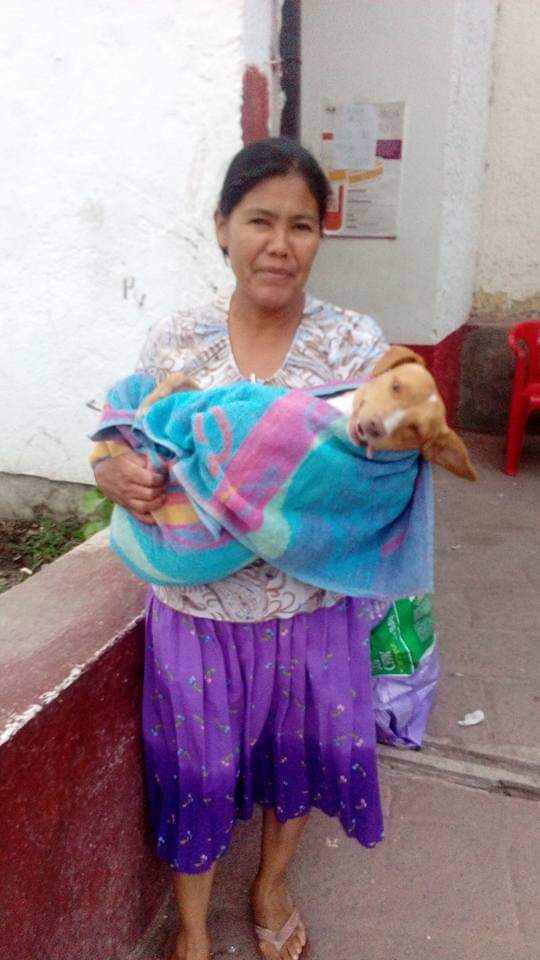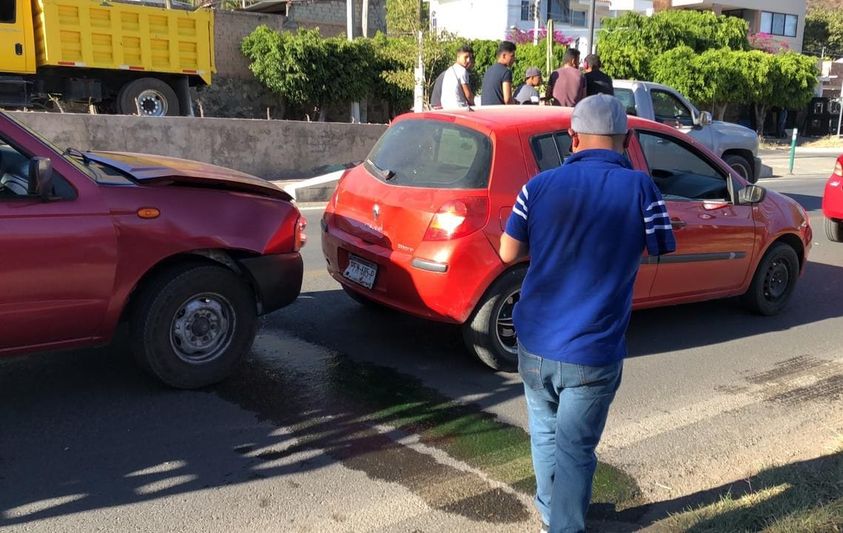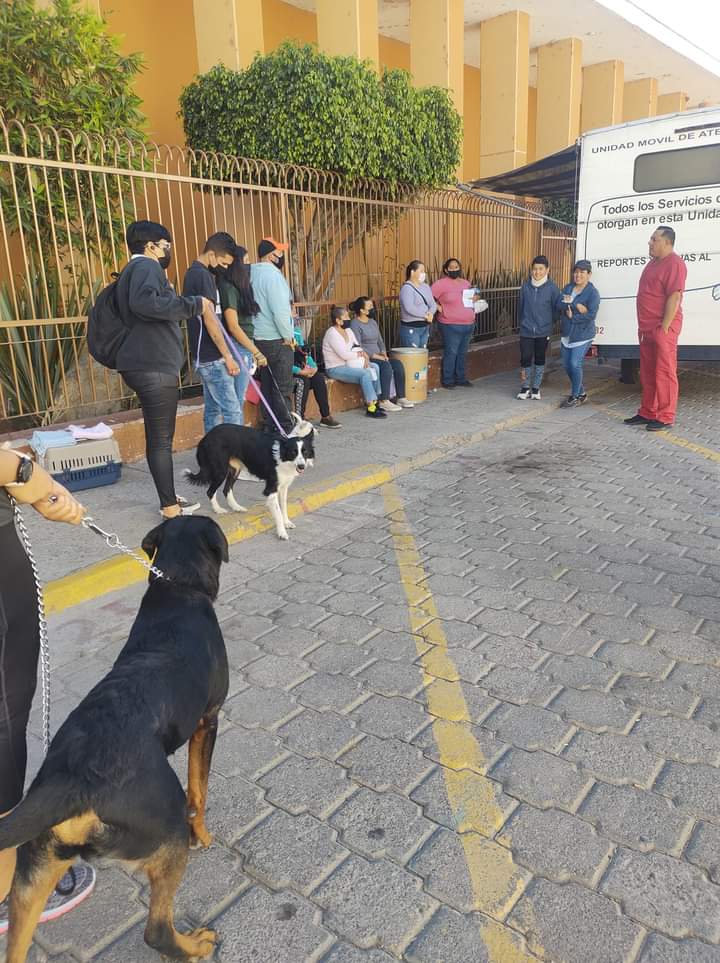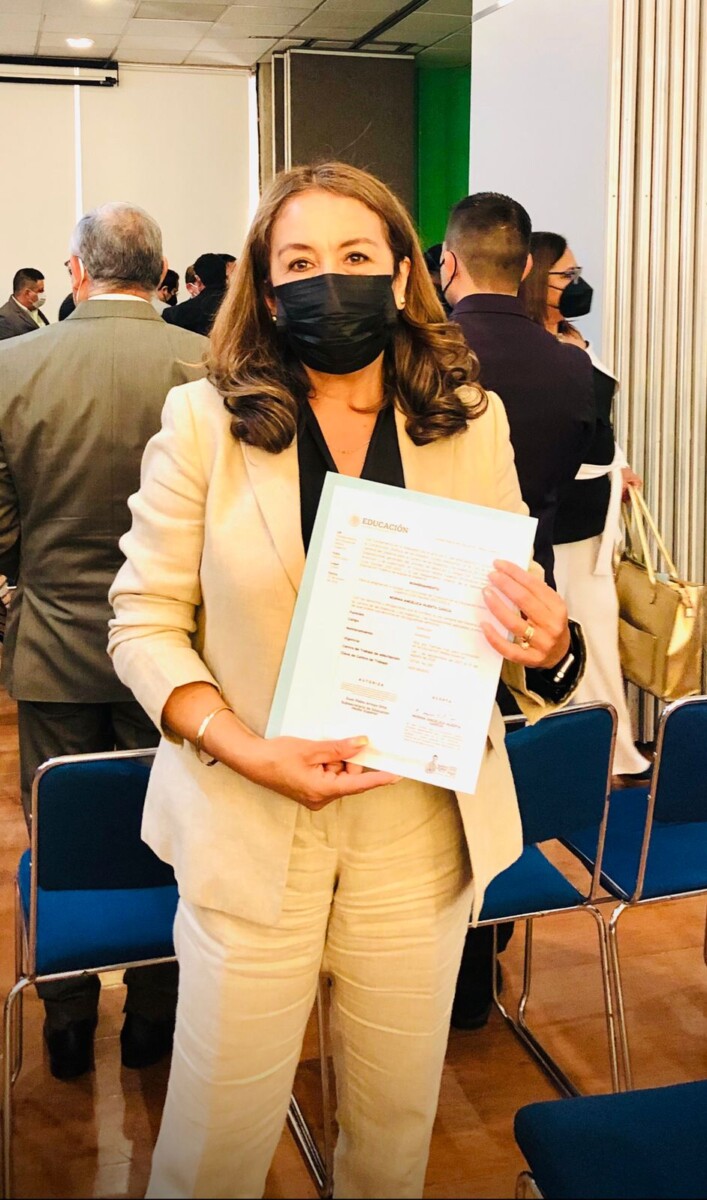Localidades
Family and friends of Juan Diaz Rodriguez demand justice for his murder
Juan was a quiet young man, an engineer and worker on a red fruit ranch. Photo: Courtesy.
Family and friends of Juan Diaz Rodriguez demanded justice and clarification of what happened to the young engineer, who was known and appreciated by many people in the town of San Juan Tecomatlan, municipality of Poncitlan. Juan had been reported missing on Monday, March 14, but three days later he was found dead in the town of Mezcala.
Juan did not mess with anyone, according to what his friends said, describing him as a hard worker who working on a ranch growing berries, and collaborated on the website «San Juan Tecomatlan Oficial»,. The wevbsite issued a statement lamenting his death and demanding the authorities provide more security and clarifiy what happened.
Diaz Rodriguez left San Juan Tecomatlan in a van, which had a satellite locator, so the unit was found, but without the driver. On Thursday, March 17, it was reported that the engineer had been found dead in Mezcala, in a field on the side of the road.
For now the motive of the crime is unknown, the authorities will be in charge of the investigations to solve the murder, while the angry and dismayed inhabitants of San Juan Tecomatlán demand justice
Translated Patrick O’Heffernan
Crash creates traffic chaos in Ajijic
The pickup truck hit the vehicle from behind
According to the driver of the red car, he was driving along the highway when he was suddenly hit from behind by the pickup truck, apparently due to an oversight of the other driver who failed to brake. His car suffered damages to the hood and spilled antifreeze, while the pickup truck suffered minor damages.
The mishap caused a traffic jam for motorists who were driving from Jocotepec to Chapala.
Translated by Sandy Britton
Chronicles of La Ribera
Don Pedro Mendoza Navarro received the «Roberto Montenegro» recognition, granted by the Ministry of Culture of Jalisco for his trajectory as a wool sarapes weaver. Photo: María Reynozo.
Don Pedro Mendoza Navarro, who has been weaving wool sarapes in the municipality of Jocotepec since he was eight years old, is one of the twelve artisans of Jalisco summoned to receive the «Roberto Montenegro» award for his lifetime career as a creator of wool woven sarapes. The recognition is granted by the Ministry of Culture of the State Government to the most experienced men and women.
The Patio de los Angeles cultural center in the Analco neighborhood of Guadalajara is the setting for the award ceremony; since before four o’clock in the afternoon on Friday, March 18, a dozen artisans and their families from some ten municipalities in the state have been seated waiting for the ceremony to begin.
There is a predominance of gray-haired men in the front row; an elderly man in a wheelchair is constantly attended to by his relatives. They adjust his hat, talk in his ear, check his mouth and eyes. One wears light leather huaraches. Two men wear white hats; one of them holds it in his hands waiting for the session to begin. Meanwhile, he spins it around, like the character in Edmundo Valadez’s story (Death has permission) who waits nervously in a meeting.
Doña Elena Quezada Cabrales, 89 years old, embroiderer, is the only woman being honored. She also waits seated next to the man in the wheelchair, in silence.
It is about five o’clock in the afternoon and the artisans are still waiting for the authorities who are about to arrive.
Don Pedro Mendoza, 76 years old, is very happy and nervous too, the wait lengthens the nervousness because he is the one selected to speak once the awards ceremony begins.
-Tomorrow is Saint Joseph the Worker’s Day,» he says, proud to feel the same way, a simple worker who makes pieces worthy of being shown to the world.
One of his sarapes is on display; it is cream colored natural wool with colored threads; the bright rhomboids in the center seem to move, the light blue and red flowers appear bright, next to a poster with a phrase of Don Pedro obtained from a series of interviews conducted by the agency.

The sarapes that Don Pedro weaves on his pedal loom are distinguished by their colorfulness and traditional technique. Photo: María Reynozo.
«When I teach a boy to use the loom, I am happy, because I know that my knowledge will not die when I am gone,» reads the small sign.
According to Rafael Castro Rivera, Head of Popular and Urban Cultures of the state cultural agency, the artisans honored are on average 78 and 92 years old.
Around five o’clock in the afternoon, Margarita Alfaro Aranguren, Director of Artisan Promotion; Lourdes González Pérez, Secretary of Culture of Jalisco and Mario Alberto Limon Carranza, Director of Integral Project Management of the same agency, were present. They occupied the chairs placed at the front of the presidium. Don Pedro and Doña Elena were also there.
In his speech, the Jocotepec weaver expressed his emotion for the possibility of transmitting his knowledge to the new generations through the Jocotepec Weaving School, where he teaches young people to weave wool.
Amidst applause and after the speeches of the officials, the artisans receive the recognition framed in a wooden frame that they embrace for the photo.
The 12 artisans recognized were Alejandro Alfaro, Juan Manuel Águila, Pedro Mendoza, Elena Quezada, Flavio García, Luis Zermeño, Carmen Torres, Jesús Flores, Luciano Jacobo, Jorge Soriano, José Hernández and José Ascensión Juárez.
Around the meeting and on the occasion of the Day of the Artisan (March 19), the head of the Secretariat of Culture organizes the exhibition of handicrafts Made with the heart in which pieces from different municipalities are exhibited. On display are huaraches and cutlery from Sayula, ocochal objects from Mazamitla, pink quarry sculptures from San Miguel el Alto and bone carving objects from Teocaltiche.
The attendees begin to leave, some hurriedly drink the horchata water offered to them and eat the steamed tacos that were served. Others take them and leave in a hurry.
The authorities continue to participate in the tour. Among all the pieces; Don Pedro’s serape seems to shine; the flowers acquire movement when the Secretary of Culture, Lourdes Gonzalez, takes it in her hands in her final tour of the exhibition. Don Pedro talks proudly about his process, showing the authorities his hands marked by a lifetime’s work at the loom. He not only has dozens and dozens of sarapes to his credit, but dozens more on the waiting list. He is finishing a path for the Lord of Huaje, of which he will only charge for the material, because he reiterates, the work for him is not charged.
This weaver of colorful threads represents today the municipality of Jocotepec in an event of austere recognition where what shines the most is that serape dotted with figures that «seem to move».
Translated by Patrick O’Heffernan
Caldo Michi: The dish of Lake Chapala’s fishermen
Caldo Michi often has potato and carrot
Sofia Medeles (Ajijic).– “Caldo Michi” or Michi Soup is a very traditional dish for many of the towns around Lake Chapala, and Ajijic is no exception. The former Director of the Historical Archive of Chapala and researcher, Eduardo Ramos Cordero, shares his memories of this traditional dish. According to his grandfather’s memories, the broth was prepared by fishermen after their day’s work. Back in the 1950s and even before, Ramos Cordero recalled that he observed this custom, not only during Lent, but on a daily basis, «Before, the shores of the lake were full of crops: peanuts, watermelons, melons, chili peppers, cucumbers, papaya, jicama, even marijuana and poppy. Some of the owners of these orchards did not pay with money, but in trade. The fishermen would agree that one or two would go to the shore of the lake to start preparing the soup, so that by 2-3 pm, everyone would be eating.»
What varied in the broth was mainly the type of fish used. The fishermen used everything from catfish, tilapia, carp, white fish, charales (chirostoma), to acociles (a tiny crayfish), red crab, small crabs, eels or lamprey fish and turtles. The original preparation includes a bit of lard, tomatillos, onion, plums or green mango (depending on the season), and chiles güeros or banana peppers. The veggies are sautéed, and then the water, fish, salt are added. It’s garnished with a few sprigs of flowered cilantro.
«I had nutrients from many fish,” said Eduardo Ramos Cordero. Known also as Lalo. “When the broth was made, everyone ate: the fishermen, their wives (who brought tortillas), and sometimes their children. Although it was originally made by fishermen, lots of others made it, especially during Lent,» Lalo finished.
Some sources say that this dish originated in the town of Atotonilco, Jalisco, however, for the most part, researchers have found a broth being prepared in a similar way throughout the Lake Chapala area. Its name comes from the Nahuatl word, Michi, which means fish, although others claim it’s because it comes from Michoacán.
Caldo Michi Recipe
Ingredients:
2T lard
4 tomatillos, cut in large wedges
1 onion cut into quarters
6 banana peppers, without tip
A sprig of flowered cilantro
4 medium catfish
Water
Salt, to taste
Optional: Depending on the season, ¼ of green plums, or 4 green mangoes peeled and split and pitted.
Directions
- Heat the lard in a large pot over medium, once it is melted and hot, sauté the tomatillos, onion, and chiles güeros.
- Add the water and let it boil.
- Add fish to taste, either whole or in pieces, salt to taste. Add water to cover the fish.
- As soon as the fish is cooked, remove from heat, garnish with cilantro.
Translated by Amy Esperanto
Blooming trees bring nature’s color to the Magic Town of Ajijic
In Castillo de La Floresta, jacarandas abound. Photo: Sofía Medeles.
Sofía Medeles (Ajijic).- Ajijic has earned the designation of Magic Town, not only for its traditions, but also for the beauty of its streets and the diversity of nature. Proof of this are its spring landscapes with the large number of colorful flowering trees.

Purple rose or guayacan tree on Rio Yaqui street, at the intersection with Rio Bravo. Photo: Sofía Medeles.
La Floresta, in the east of the delegation, is one of the areas bursting with flowering trees.. It is enough to walk a few steps inside the subdivision to find several jacarandas – Jacaranda mimosifolia – that turn the planters purple. The so-called «Castle of La Floresta» has one of the highest concentration of these trees in Ajiic.
In the streets of the central part of Ajijic, what is most abundant are the spring trees – Tabebuia donnel-smithii – in yellow color, standing out among the older houses. «They must be at least 50 years old, even older,» commented some of the older adults interviewed.

The yellow of spring tinges the cobblestones of Independencia Street. Photo: Sofia Medeles.
In some streets, pink also stands out due to the purple rose tree -guayacán or Tabebuia rosea-, as well as the bougainvillea. Although the bougainvillea bloom most of the year, they are most intense in spring.
Likewise, on Ajijic’s boardwalk, on the west side, there are several trees in shades ranging from yellow to pink and purple, which are the most admired by visitors.

Leafy jacaranda trees on Hidalgo Street, in the area known as Las Seis Esquinas. Photo: Sofia Medeles.
Walking through Ajijic Magic Town during the spring, one is immersed in a colorful atmosphere that comes from its facades as well as from trees and flowers that decorate its narrow cobblestone streets.

Pink bougainvilleas north of Ajijic, on Calle Galeana. Photo: Sofia Medeles.

Trees with different colored flowers can be seen on the Ajijic boardwalk, in the area of the International Garden. Photo: Sofía Medeles.
Translated by Elisabeth Shields
Imputan por abuso sexual infantil a sacerdote de Ixtlahuacán de los Membrillos
El párroco Alejandro C. fue detenido por elementos de la Fiscalía del Estado e imputado por el delito de abuso sexual infantil. Foto temática: Internet.
Redacción.- Por los delitos de abuso sexual infantil agravado y corrupción de menores, un sacerdote de Ixtlhuacán de los Membrillos fue detenido por la Fiscalía del Estado.
Se trata de Alejandro C. de 40 años de edad, quien es párroco eclesiástico de una parroquia ubicada sobre circuito Los Olivos y la calle Olivo Portugués, en la colonia Los Olivos II, en el municipio antes señalado.
De acuerdo con las investigaciones el agravio ocurrió el pasado 15 de febrero contra una menor de edad y posteriormente se denunció. Personal ministerial de la Fiscalía Regional del Distrito V, reunió la carpeta de prueba donde se presumía la comisión de los delitos, por lo que se solicitó una orden de aprehensión.

Mediante redes sociales, el Arzobispado de Guadalajara emitió su postura respecto a la denuncia contra el sacerdote. Foto: Especial.
El sacerdote Alejandro C. fue detenido hace unos días y puesto a disposición del Órgano Jurisdiccional ante el cual el Ministerio Público procedió a la imputación por los delitos de abuso sexual infantil agravado y corrupción de menores.
Durante el desarrollo de la audiencia inicial se estableció que el sujeto permanecerá en prisión preventiva oficiosa por el plazo de la dilación constitucional, en tanto el próximo lunes 4 de abril se dará la continuación de la misma.
Por su parte, mediante un comunicado, la Arquidiócesis de Guadalajara informó su disposición para colaborar en la investigación a la que será sometida el párroco, además de que aclaró desconocer el caso denunciado debido a que no se tuvo contacto con la familia de la víctima.
“Queremos señala que, de parte de la Arquidiócesis de Guadalajara, estamos en la mejor disposición de colaborar con las autoridades correspondientes para que se esclarezcan los hechos y se proceda de un modo justo, aportando los elementos que nos soliciten para deslindar responsabilidades”, se lee en el documento difundidos mediante redes sociales.
Pet sterilization campaign successfully carried out
Jocotepenses waiting for their turn to have their pets sterilized outside the Marcos Castellanos auditorium, in the center of the city.
Héctor Ruiz Mejía(Jocotepec).- Jocotepenses responded favorably to the sterilization campaign of dogs and cats carried out in the municipal capital. In coordination with the Secretary of Health of Jalisco (SSJ) and the Office of Protection and Dignified Treatment of Animals of Jocotepec, between 15 and 17 pets were attended per day, in the mobile module that was installed outside the Marcos Castellanos auditorium.
María Aparicio Cid, member of Salud y Derecho Ambiental, A.C., said that the campaign began on March 8 and, due to its success, will be extended until March 25.
Aparicio Cid said she was satisfied to see that not only the people of the municipality have done their part to combat the serious problem faced by all of Lakeside in the abandonment of animals, but also the staff of the SSJ.
The campaign has been implemented with the help of a single veterinarian who comes daily from the headquarters of the Sanitary Region IV Ciénega-La Barca, to perform surgery on all the animals.
This, explained Aparicio Cid, has demonstrated a high awareness of the need for sterialization, as he recalled how in the 20 years he has had experience in the subject, the people’s awareness was much lower, and has evolved.
«I feel very happy, because 20 years ago I had to beg people, I went from house to house knocking on doors and nobody wanted to, they assumed their pets’ sexuality as their own, it was chaos», she said.

Owner with her pet, which was sterilized, wrapped in a blanket.
Finally, the civil worker urged the community not to loosen the sterilization measures, because the problem transcends the abandonment of animals; this also generates high rates of dog bites to children, even car accidents.
«The whole Lakeside region suffers from a serious problem of animal abandonment, this generates all kinds of consequences, including many people who have crashed while driving and a dog crosses their path», he added.
Finally, Aparicio Cid took the opportunity to invite citizens to take their dogs and/or cats to be sterilized, they will continue to be treated in the area in front of the Marcos Castellanos auditorium, Monday through Friday from 9:30 in the morning to 3:00 in the afternoon, with the exception of Monday 21st, as it is a holiday.
The procedure is by appointments, available in person at the Jocotepec Animal Protection and Dignified Treatment Office, or call 3317940347.
Norma Huerta is officially appointed director of CETAC 01
Norma Angélica Huerta García, 52, is the new director of CETAC 01 after receiving her appointment February 21. Photo: Courtesy
Héctor Ruiz Mejía(Jocotepec).- After almost five months in the position, Norma Angélica Huerta García received her official appointment as the director of the Center for Technological Studies in Continental Waters of Jocotepec (CETAC 01).
Huerta García, 52 years old with more than 21 years of experience in the educational field, received her appointment on February 21 in Mexico City, along with 233 other directors of schools in 30 states of the country.
The new director has a degree in chemistry, and master’s and doctorate degrees in education. In an interview, she reiterated her commitment to young people in educational matters, assuring that they will always be the school’s priority.
«As an educational institution, our commitment is to provide the community with quality education, promoting the transformation of society; we will always promote learning excellence,» she said.
Huerta García added that the academic commitment will be focused on the new trends of the educational system such as the New Mexican School, with a technological approach implemented in education.
The appointments of the 233 directors were delivered by Guillermo Antonio Solís Sánchez, head of the General Directorate of Agricultural Technological Education and Marine Sciences (DGETAyCM), for the period from September 1, 2021 to August 31, 2025.
Translated by Christalle Dalsted
New director for Chapala national women’s soccer team
Óscar Daniel Cruz Ruiz, new director of the Chapala 2022 Women’s National Team, and municipal president Alejandro de Jesús Aguirre Curiel during the recording of the presentation video.
Jazmín Stengel (Chapala).- Oscar Daniel Cruz Ruiz was presented through a video on social networks on March 10 as the new Technical Director and in charge of the Chapala Women’s National Team for the Jalisco Cup 2022 by president Alejandro de Jesús Aguirre Curiel.
The graduate in Physical Culture and Sports who is also the current director and coach of the Centro Educativo de Fútbol de Alto Rendimiento (CEFAR) in Chapala, will be in charge of selecting and directing the women who will represent the municipality in the third edition of the Copa Jalisco, a state amateur soccer tournament.
Cruz Ruiz expressed his desire to support the sports process as much as the athletes who will be part of it. «We have a lot of enthusiasm and we trust in our generations of girls who have been playing very hard in the municipality, so that everything will flow with good results,» said the new coach.
The first call for the Chapala 2022 National Team auditions was made unofficially a week before the presentation of its Technical Director, supported by the assistant Juan Miguel Siordia Vázquez, however, only four participants came forward.
A day after the presentation, Cruz Ruiz, also a nutritionist, took full charge of the official call on March 11, when he selected more women from Chapala to form the basis of the new team.
President Aguirre Curiel said he has great confidence in Cruz Ruiz, since in addition to being skilled in the field, he has maintained a great love for the municipality. «He has a great trajectory and above all he loves Chapala, that is why I have asked him to be part of this team…. and I know he can do it,» said the mayor.
The members of the Chapala 2022 Women’s National Team will be presented in a later edition.
Translated by Kerry Watson
Man shot during robbery
The victim was left on the ground after he was shot. Photo: Courtesy.
Two thieves on a motorcycle, intercepted a resident of Chapala who was driving a company pickup truck, with the purpose of robbing him. When the victim resisted, one of the subjects shot him. The events occurred during midday on Wednesday, March 16 in Riberas del Pilar.
The victim was on Hidalgo Avenue at the intersection with San Mateo Street, Riberas del Pilar, when two people on a green motorcycle intercepted him as he got out of the truck. The victim was carrying a large amount of cash.
The 36 year-old man, a resident of Chapala, tried to defend himself from the robbers, but one of them fired a gun, hitting him in the left knee and taking his belongings.
Paramedics from the Chapala Red Cross arrived at the scene to attend to the victim, who had to be taken to Guadalajara for medical attention. The only thing known about the perpetrators is that they fled towards the downtown area of the town of Chapala.
Translated by Sandy Britton
© 2016. Todos los derechos reservados. Semanario de la Ribera de Chapala











